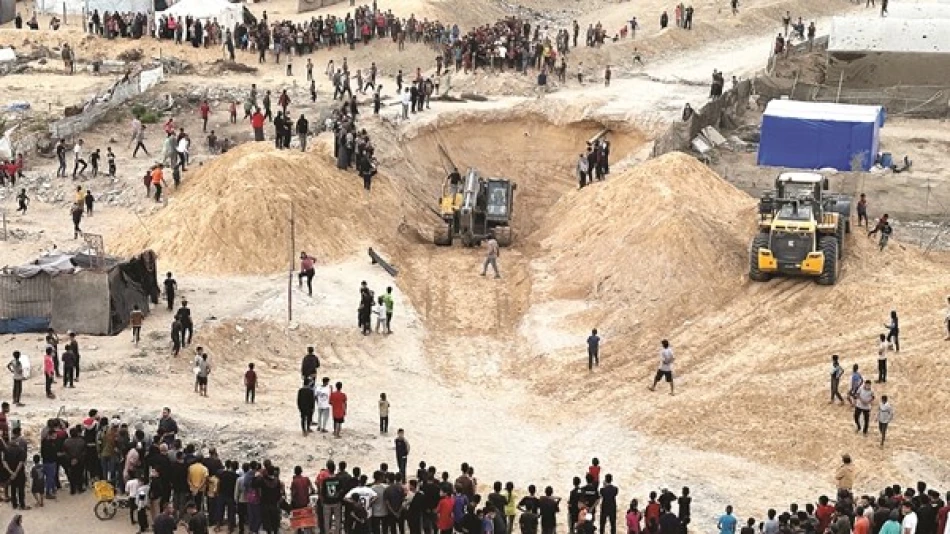
Palestinian Factions Pledge to Return Captives' Remains in Goodwill Gesture
Palestinian factions in Gaza say they're committed to the ceasefire deal with Israel but are facing serious obstacles in recovering Israeli hostage remains. They deny deliberately delaying handovers to the Red Cross, pointing instead to a lack of heavy equipment and the deaths of guards who knew where bodies were located.
A Palestinian source told mediators in Egypt and Qatar that the process has become much more complicated. Some guards watching Israeli hostages were killed during the conflict, and contact was lost with others. This means the factions literally don't know where some of the remains are buried.
Hamas issued a statement yesterday calling on mediators to intervene against what it called "serious obstacles" created by Israel. The group says Israel isn't allowing them to complete their humanitarian duties of recovering hostage remains.
But Israel sees things differently. Israeli officials accuse Hamas of stalling and have threatened to expand the "yellow line" - the buffer zone where Israeli forces are positioned in Gaza after the ceasefire. They're also threatening to cut humanitarian aid entering the strip.
The tension got worse after Hamas handed over remains on Tuesday that turned out to be from a hostage Israeli forces had already recovered about two years ago. Prime Minister Benjamin Netanyahu held emergency talks after this incident, and Israeli hostage families demanded "decisive action" against Hamas for what they called a violation of the agreement.
Here's where it gets messy. The Qassam Brigades, Hamas's military wing, announced last night they would hand over another body found recently in a tunnel. But the back-and-forth over who's responsible for delays is complicating what should be a straightforward humanitarian process.
Behind the scenes, intensive talks are happening between mediators in Egypt, Qatar, and the United States. They're trying to move toward phase two of the ceasefire agreement, which is supposed to start in November. The goal is to make the current truce permanent, with backing from Egypt, Qatar, the US, and Turkey.
Israel has drawn a hard line on the next phase. They won't enter second-stage negotiations until they receive all remaining Israeli hostage bodies. And they're demanding Hamas give up its weapons and stop governing Gaza as part of any phase two deal.
The practical challenges on the ground seem to be getting lost in the political accusations. Gaza's infrastructure was heavily damaged during the conflict, making recovery operations difficult even with good intentions. The question now is whether mediators can separate the humanitarian work of recovering remains from the larger political disputes that could derail the entire ceasefire.
Most Viewed News

 Layla Al Mansoori
Layla Al Mansoori






